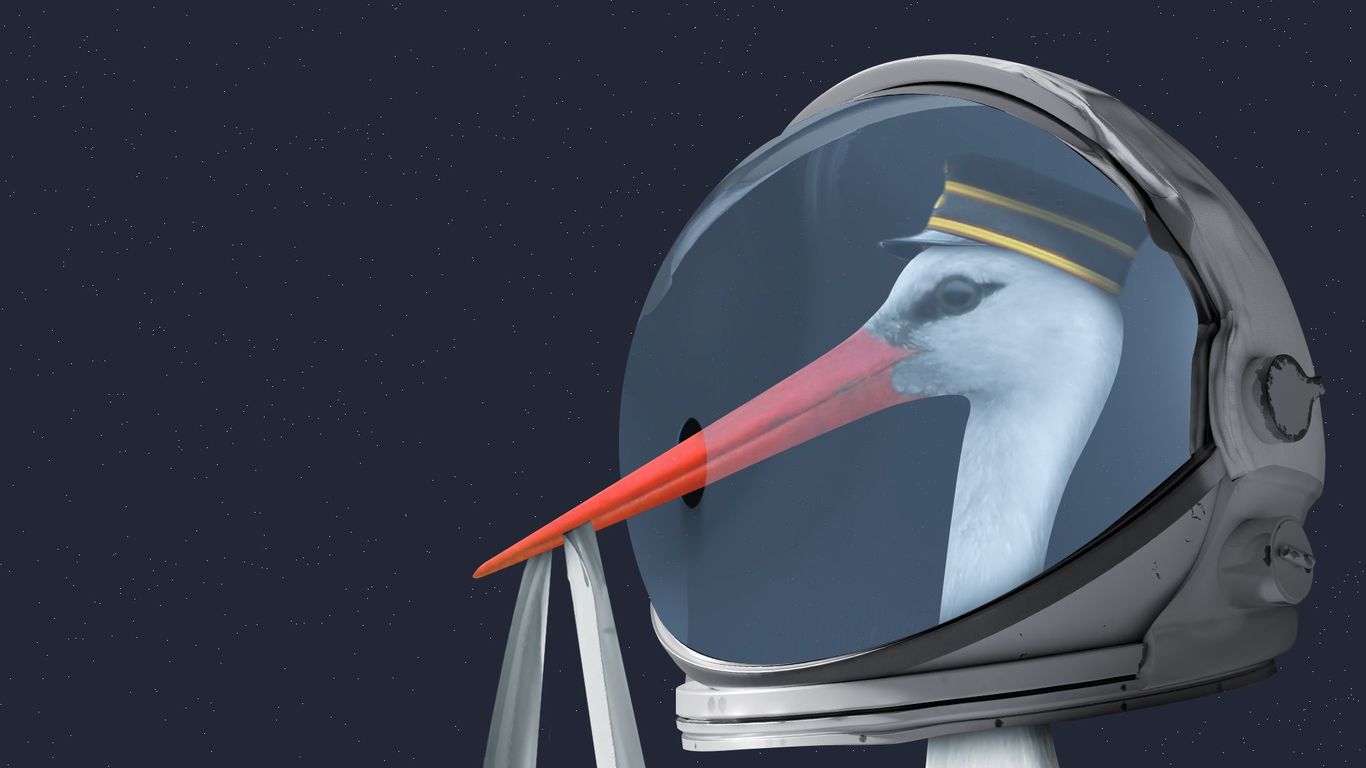
Before humans can settle off-Earth, scientists need to figure out how — or even whether — people can reproduce in space.
Why it matters: Powerful figures in the space industry like Elon Musk and Jeff Bezos have dreams of a future where millions of people live in space, which would naturally require a self-sustaining population of humans somewhere other than Earth.
- "It has been [more than] 20 years since the last systematic experiments on vertebrate reproduction and development in spaceflight," Gary Strangman, the scientific lead at the Translational Research Institute for Space Health, told me.
- "Yet we are now actively planning missions and building rockets to reach the Moon and Mars. Reproduction will almost certainly be relevant to a three-year mission to Mars. And we don’t want to discover serious adverse effects by accident."
What's happening: Scientists have sent a number of experiments to the International Space Station in recent years to try to answer various questions about what it might take for mammals, and eventually humans, to reproduce in space.
- A study published in June found freeze-dried sperm from mice sent to the ISS weren't adversely impacted by the environment in low-Earth orbit, producing healthy pups back on Earth after its return.
- An earlier Russian experiment sent male and female rats to orbit, allowing them to breed. Two of the female rats became pregnant, but neither resulted in a live birth.
Yes, but: More in-depth studies are needed in order to figure out just what it would take for humans and other species to have babies off-Earth, and some scientists say there hasn't been enough attention paid to funding and performing these types of studies.
- "There's always been a bigger problem to solve," Virginia Wotring, a professor at the International Space University, told me. The focus instead has been on the technology needed to get to orbit, life support and funding for deep space efforts.
- "The risks of spaceflight are (reasonably) well-understood, but the consequences of those risks on conception, pregnancy, birth and development are barely understood at all — in any species, but particularly in mammals, and even more so in humans," Strangman said via email.
- Women have been historically underrepresented among astronauts, making it harder to study how important parts of reproduction like birth control, menstruation and ovulation may work.
The big question: What are the major factors that could limit how and whether humans can have healthy babies in space?
- Mouse sperm and embryos haven't been adversely impacted by the radiation environment on the ISS, but as humans push to farther-afield destinations like Mars, that could change as the radiation environment gets worse.
- Gravity may also be important in physically arranging the cells in an embryo. Researchers are now analyzing an experiment on the space station where astronauts cultured frozen mouse embryos to see if they needed gravity to develop. (The results of that research haven't yet been made available.)
- But it could be even more simple: Mammals are sensitive to stress, making it difficult to mate even on the ground, Teruhiko Wakayama, a researcher focusing on reproduction in space, told me.
- The ethical issues surrounding studies of human reproduction also limit experiments in space, according to Strangman.
What's next: A number of studies being proposed in the coming years could help answer those outstanding questions around reproduction in space.
- Wakayama and his research team are hoping to send freeze-dried sperm to the Gateway, a planned facility that would orbit the Moon, to understand how it fares in a more radiation-intense environment.
- Another proposed experiment, which likely still has decades to go before launch, would send tardigrades — microscopic extremophiles that are hardened to the space environment — and nematodes on an interstellar journey to see how they behave, including how they might reproduce far from Earth.
"time" - Google News
January 25, 2022 at 05:30PM
https://ift.tt/3u24SdB
It's time to take reproduction in space seriously - Axios
"time" - Google News
https://ift.tt/3f5iuuC

No comments:
Post a Comment